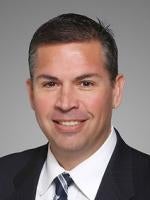Centex Homes, et al. v. St. Paul Fire and Marine Insurance Company, — Cal.Rptr.3d –, 2018 WL 494749 (Jan. 22, 2018), Third Appellate District Court of Appeal, Case No. C081266.
Homeowners from two residential developments sued Centex for alleged construction defects. As an additional insured under policies issued to subcontractor Ad Land Venture, Centex tendered the underlying construction defect lawsuit to St. Paul Fire and Marine Insurance Company.
St. Paul appointed a lawyer to defend Centex, but subject to a reservation of rights that its general liability policies issued to Ad Land did not cover damage to Ad Land’s work or damage caused by the work of other subcontractors that it did not insure. St. Paul also reserved its right to seek reimbursement of costs incurred in defending uncovered claims.
In the construction defect suit, Centex filed a cross-complaint against its subcontractors for breach of contract, indemnity, and contribution. It also asserted a claim against St. Paul seeking a judicial declaration that St. Paul’s reservation of rights triggered Centex’s right to independent defense counsel under California Civil Code section 2860.
Centex offered three primary arguments to support its right to independent counsel, which the trial and appellate courts rejected.
First, Centex argued that even a possible or potential ethical conflict for carrier-appointed defense counsel supports an insured’s right to independent counsel. According to Centex, Section 2860’s reference to “a possible conflict” supported the argument.
The Court of Appeal disagreed, explaining that California law is settled that the “conflict must be significant, not merely theoretical, actual, not merely potential.” (Quoting Dynamic Concepts, Inc. v. Truck Ins. Exch., 61 Cal.App.4th 999, 1007 (1998).) “A mere possibility of an unspecified conflict does not require independent counsel.” (Id.) The right to independent counsel occurs whenever the competing interests between insured and insurer create an ethical conflict for counsel. To support an actual conflict, “[t]here must . . . be evidence that the outcome of [the] coverage issue can be controlled by counsel first retained by the insurer for the defense of the [underlying] claim.” (Quoting Gafcon, Inc. v. Ponsor & Assoc., 98 Cal.App.4th 1388, 1421 (2002).) But “there is no entitlement to independent counsel where the coverage issue is independent of, or extrinsic to, the issues in the underlying action.” (Id.)
Section 2860’s reference to “possible conflicts” also did not support Centex’s position. As the Court noted, the reference related to the part of the statute explaining that an insurer does not need to provide independent counsel after an actual conflict arises if the insured expressly waives in writing the right to independent counsel. The statute did not support that a potential conflict gives rise to a right to independent counsel.
Second, Centex argued that Rules of Professional Conduct relating to the representation of joint clients require the appointment of independent counsel in the event of any potential conflict. The Court disagreed, reasoning that the Rules did not generally apply in the context of an insurance-funded defense, where the insurer’s interests are as an indemnity provider and not as a direct party to the action. Even if the Rules did apply, they would only be triggered “when there is a reasonable likelihood an actual conflict will arise,” which did not exist under the circumstances of Centex’s insurance-funded defense.
Third, Centex argued that the outcome of coverage-related causation issues could be controlled by carrier-retained counsel. Centex, however, offered no explanation as to how its appointed counsel could influence the outcome of the causation question. Rather, the Court noted, “because Centex is strictly liable for construction defects, causation would not necessarily have been litigated in the underlying action.” The Court also concluded that St. Paul and Centex had the same interest in defending the underlying defect claims.


 />i
/>i
